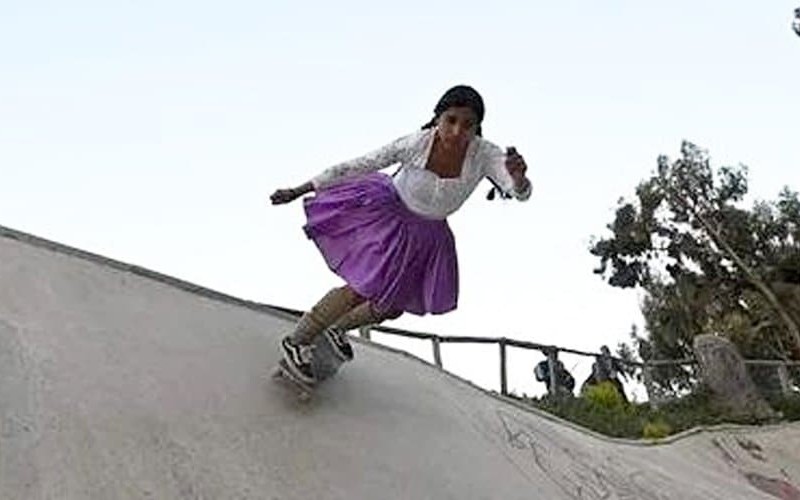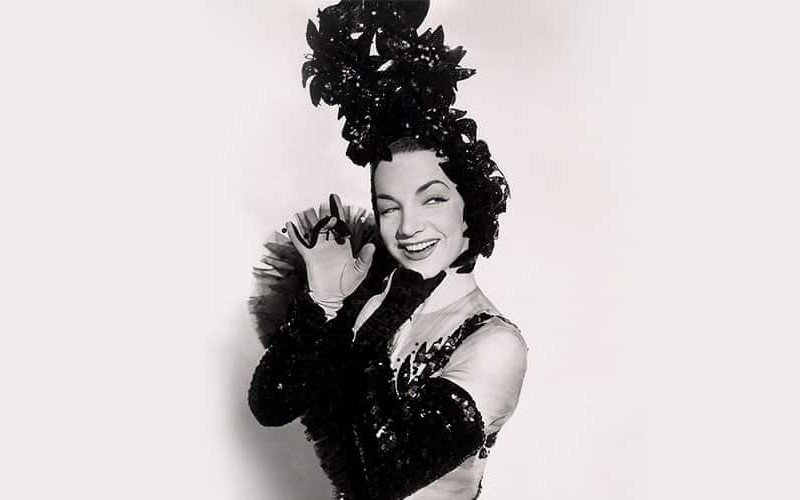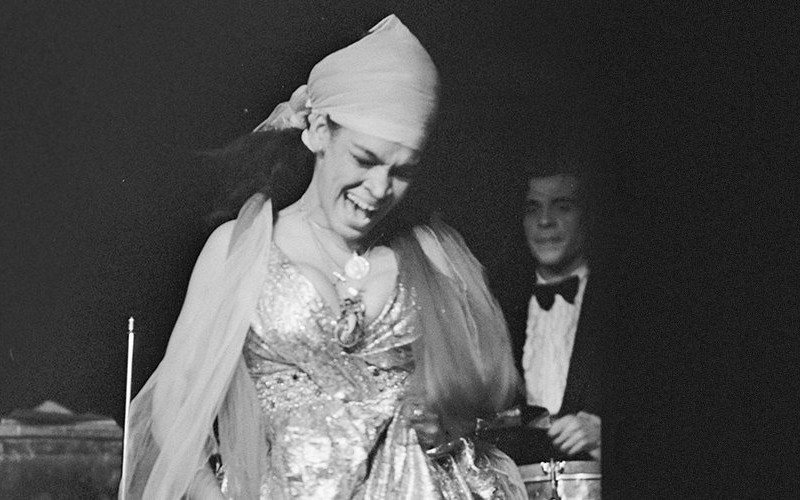The Story Behind Imilla Skate: Bolivia’s ‘Cholita’ Skater Girls
Picture a skater’s outfit—you’re probably not thinking of tall bowler hats, long beautiful braids, and flowing pollera skirts. Well, that’s just the beginning of what makes Imilla Skate so unique.

A distinct rhythm echoes through the streets in the vibrant city of Cochabamba, Bolivia. A rhythm not forged from conventional instruments but the wheels of skateboards under the bright, frilly skirts of an audacious group of young women, the Imilla Skate collective. Their colorful indigenous attire — high bowler hats and billowing pollera skirts — combined with the clatter of skateboards, challenges what one would typically imagine when picturing a skateboarder.
The term “Chola,” a moniker now cherished by the indigenous women of Andean Bolivia, wasn’t always delivered with affection. Once, it was a derogatory phrase aimed at indigenous Aymara or Quechua women, their unique pollera skirts and high bowler hats scorned. They were barred from public services and looked down upon. But as the times changed, the Cholitas reclaimed the term, and their traditional attire slowly became a vibrant display of identity and resilience.
A garment born from the 16th-century Spanish conquest, polleras were once forced upon the indigenous population. Yet, as centuries passed, the pollera transformed from a symbol of subjugation to an emblem of cultural pride.

At the heart of the Imilla Skate story is Dani Santiváñez, a fearless 26-year-old skater from Cochabamba. Together with two friends, Dani formed Imilla Skate in 2019. Imilla, meaning ‘young girl’ in Aymara and Quechua, the dominant languages of Bolivia, was more than just a name for their collective. It was a powerful symbol of their deep-rooted connection to their ancestral heritage.
Their cultural pride didn’t stop at their skirts. Even their long, flowing hair is a testament to their tradition. Each stroke of the brush is a purifying ritual, a ward against negative energy. The act of brushing each other’s hair isn’t just about beauty; it’s a symbolic ritual that strengthens their bond.
Imilla Skate’s story converges with the tale of La Coronilla, a neglected part of Cochabamba that was once riddled with crime. However, in 2019, an old parking lot was transformed into Bolivia’s first park dedicated solely to skateboarding. The once-forgotten corner of the city was reborn, filled with skaters, breakdancers, and parkour enthusiasts, all thriving in a newfound connection.
The girls of Imilla Skate claimed this revitalized space as their own, turning their daily practices into a community skate school for local kids, nurturing the rebirth of La Coronilla into a pulsating hub of community activity.
As they glide and flip through the streets of Sucre, their bold moves and vivid attire turn heads. Their influence has sparked a movement, inspiring other women to form their own skate crews. Bolstered by the encouragement of their families, the Imilla Skate collective has ignited a revolution, offering a fresh perspective on the perception of women in ‘pollera.’
As the Imilla Skate women glide through the park in their polleras, they aren’t just skateboarders – they are symbols of resistance, cultural preservation, and empowerment.




